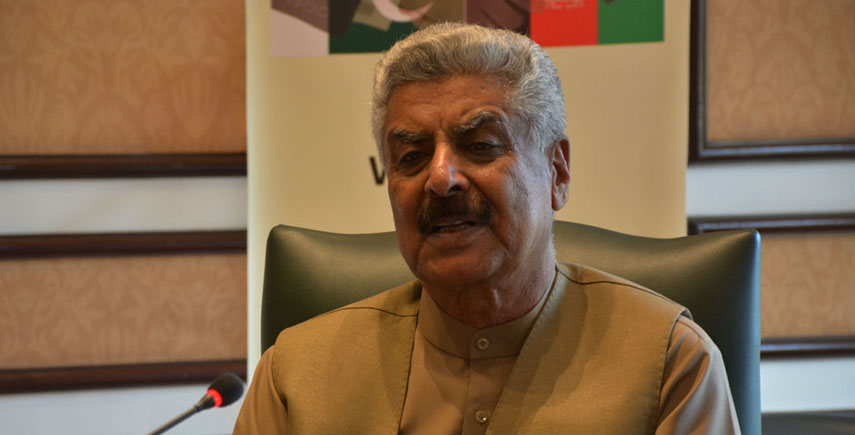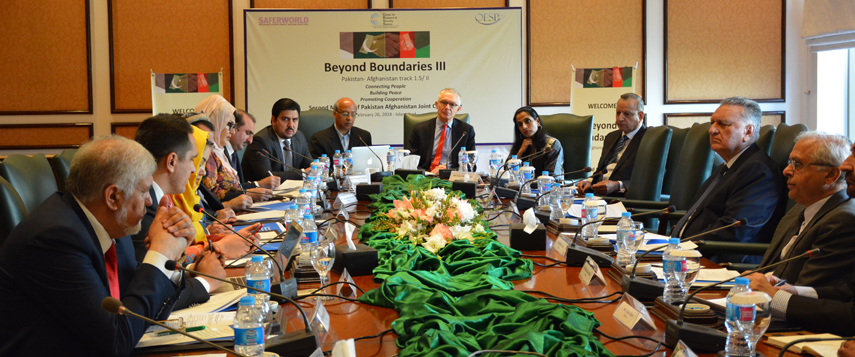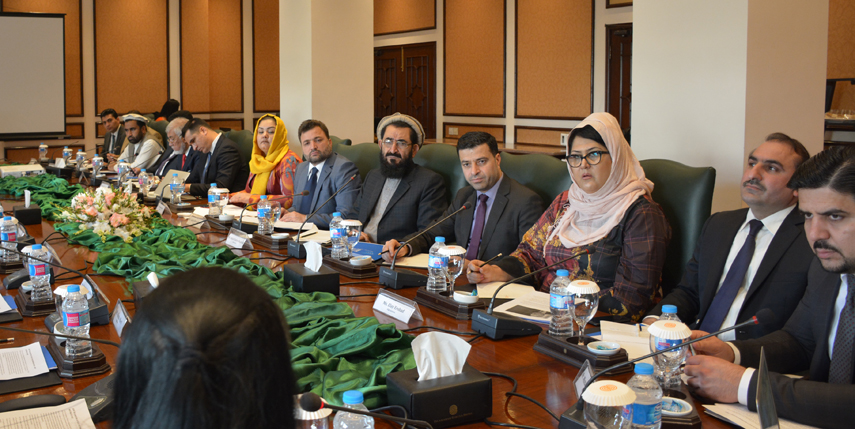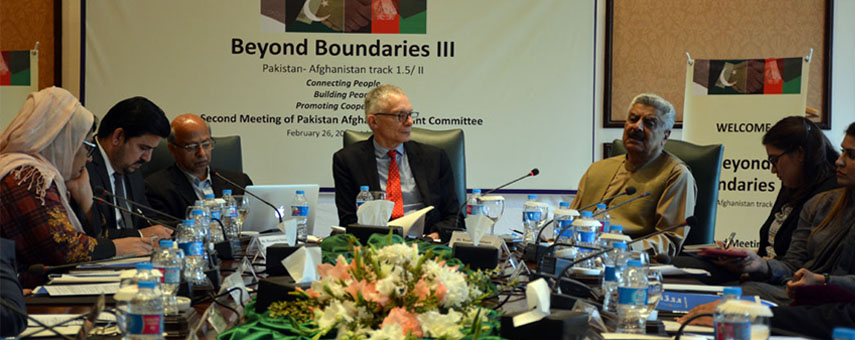We had no serious complaints of Afghan refugees’ involvement in the acts of terrorism in Pakistan. The poor refugees have nothing to do with security situation. Also there is no serious law and order issue or conflict witnessed between the local communities in Pakistan and Afghan refugees. Pakistan has prepared a time and resource specific plan which is under the consideration by the cabinet. We are working in close coordination with the UNHCR, Afghan embassy and Ambassador Dr. Zakhilwal. The present government in Afghanistan is far more serious than its predecessors. All repatriation should happen in close coordination to allow a dignified return.
These were the remarks made by the Federal Minister for SAFRON, Abdul Qadir Baloch during the second round of Pak-Afghan Joint Committee (PAJC) meeting in Islamabad, organized by the Center for Research and Studies (CRSS) as part of its track II initiative Beyond Boundaries.
Gen (r) Abdul Qadir Baloch said that Pakistan was treating refugees issue purely on humanitarian grounds; separating it from the security or political domain. We also dealt it as our international responsibility. The educational and health facilities in Pakistan were available to the Afghan refugees. “I am glad to find out that 50000 people educated in Pakistan are serving in Afghanistan presently”, he said. He further noted that Pakistan had successfully issued 900 thousand Afghan Citizenship Cards (ACC) to freshly documented Afghans. Out of the 6000 educational scholarships for Afghan students to study in Pakistani universities, the first tranche of 3000 is completed, while the second one is under way. The technical/ vocational training programs for Afghan youth are also ongoing and doing well.
The participating PAJC members urged their respective governments to maintain as far as possible the principle that the refugee issue is a humanitarian issue and they should not politicize it. They should work together with the UNHCR and other UN-agencies to establish a realistic timetable for dignified voluntary return of Afghan refugees. They urged to identify the actions for the capacity building of the Afghan authorities to cope with issues such as issuing passports to all those Afghans wanting to return to Afghanistan. Also not to bracket refugees with terrorists nor use refugees for political objectives. They also urged their respective governments to set up a committee for better inter-agency and inter-governmental coordination for dignified return of refugee.
“We cannot vouch for every individual refugee. We say if there are bad guys, deal with them according to law but don’t bracket every one with terrorists”, said the UNHCR representative, Ms. Ruven Menikdiwela attending the workshop. We are encouraging voluntary return of Afghan refugees and support Pakistan’s idea that those who want to stay in Pakistan should get Afghan passports first and then stay there (in Pakistan) with a valid visa. Pakistan has been providing access to schools/hospitals which is an in-kind contribution.
She said that the kind of hospitality that the Pakistan had shown to Afghan refugees is unprecedented and something rare but unfortunately its compassion had not been given sufficient recognition. We would request Pakistan government to give all stakeholders sufficient time ahead to prepare for implementation of repatriation plans. The Afghan government should priorities building capacity of authorities in Kabul for issuing passports if it is ready to launch its resettlement program for the returning refugees.
The visiting delegation from Afghanistan comprised Elay Ershad; Member of Parliament, Rangina Kargar; Member of Parliament, Mozammil Shinwari; Advisor to the Office of Afghan Chief Executive on Trade, Sayed Qutbuddin Roydar, former Deputy Minister of State for Parliamentary Affairs, Abdul Hakeem Mujahid; former Permanent Representative of the Taliban government to the UN, Saleem Khan Kunduzi; former Governor of Nangarhar, Faridoon Sikander; Representative to Afghan Chief Executive, Lal Mohammad Durrani; Deputy of Provincial Assembly of Nangarhar, Khan Jan Alokozai; Co-Chairman and President of Pakistan and Afghanistan Joint Chambers of Commerce and Industries (PAJCCI), Naqibullah Safi; Membership Manager with Pakistan Afghanistan Joint Chamber of Commerce and Industry, Mohammad Yonass Momand; Vice President Pakistan Afghanistan Joint Chamber of Commerce and Industries (PAJCCI) and Baz Mohammad; Vice President Industrial Affairs of the Afghanistan Chamber of Commerce and Industries (ACCI).
Members from Pakistan included Shazia Marri, Member of National Assembly, former Member of National Assembly Palwasha Khan, Dr. Shoaib Suddle; Federal Tax Ombudsman, former Ambassador Qazi Humayun, former Ambassador Mian Sanaullah, Faiza; Executive Director/Secretary General of Pakistan-Afghanistan Joint Chamber of Commerce and Industry (PAJCCI), Dr. Vaqar Ahmed; Deputy Executive Director at Sustainable Development Policy Institute, and Muhammad Tahir Khan and Rehman Azhar, who are renowned journalists,






